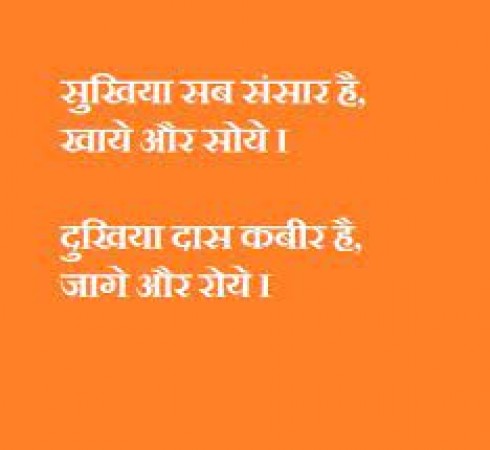
Dohas, also known as Dohavali or Dohakosha, are a form of traditional Indian poetry known for their succinctness and profound wisdom. These poetic couplets have been used for centuries to convey moral, philosophical, and spiritual teachings in a simple and captivating manner. Dohas have played a significant role in shaping Indian literature and culture, leaving a lasting impact on the minds of people across generations. Dohas hold a cherished place in the literary and cultural heritage of India. Through their profound wisdom, these couplets have inspired and guided people for centuries, enriching their lives with moral, ethical, and spiritual insights. As a testament to the power of simplicity and brevity, Dohas continue to captivate hearts and minds, making them an indispensable part of the tapestry of Indian literature and philosophy.
The origins of Dohas can be traced back to ancient India, with their development and popularization credited to renowned poet-saints, philosophers, and scholars. One of the most celebrated figures associated with Dohas is the 14th-century poet-saint, Kabir, who composed numerous couplets that remain revered to this day.The Dohas were composed in vernacular languages like Hindi, Gujarati, Rajasthani, Bengali, and others, making them accessible to the masses and contributing to their widespread popularity. Influenced by the cultural and spiritual diversity of India, Dohas draw inspiration from various religious and philosophical traditions, including Hinduism, Buddhism, Jainism, and Sufism.
Dohas are characterized by their simplicity, brevity, and lyrical quality. Each Doha consists of two lines, often rhyming, with each line having an equal number of syllables. The simplicity of language and construction allows Dohas to carry profound meanings and evoke deep emotions with just a few words.
Dohas encompass a wide range of themes and subjects. Some of the common themes include:
Morality and Ethics: Many Dohas offer valuable insights into ethical conduct and righteous living. They emphasize the importance of truth, compassion, humility, and honesty in one's actions.
Spirituality and Devotion: Dohas often explore the path to spiritual enlightenment and the devotion to a higher power. They discuss the significance of self-realization and the search for inner peace.
Human Nature and Relationships: Some Dohas delve into the complexities of human emotions, relationships, and the challenges faced in everyday life.
Nature and the Universe: Dohas beautifully capture the wonders of nature and the interconnectedness of all living beings with the cosmos.
The enduring appeal of Dohas lies in their timeless relevance. Despite being composed centuries ago, their messages remain applicable to contemporary life. The wisdom encapsulated in these couplets transcends cultural and linguistic boundaries, resonating with people from various backgrounds and beliefs. Dohas have been instrumental in spreading knowledge and wisdom in societies where oral tradition played a crucial role in transmitting knowledge. As they were easy to memorize and recite, Dohas became valuable teaching tools for passing down ethical and spiritual values from one generation to another. These couplets have also contributed to preserving Indian culture and traditions. Many Dohas reflect the cultural ethos, customs, and practices of different regions in India, acting as windows to the past and helping to maintain cultural continuity.
also read – Vedas: Ancient Scriptures of Wisdom and Spiritual Insight